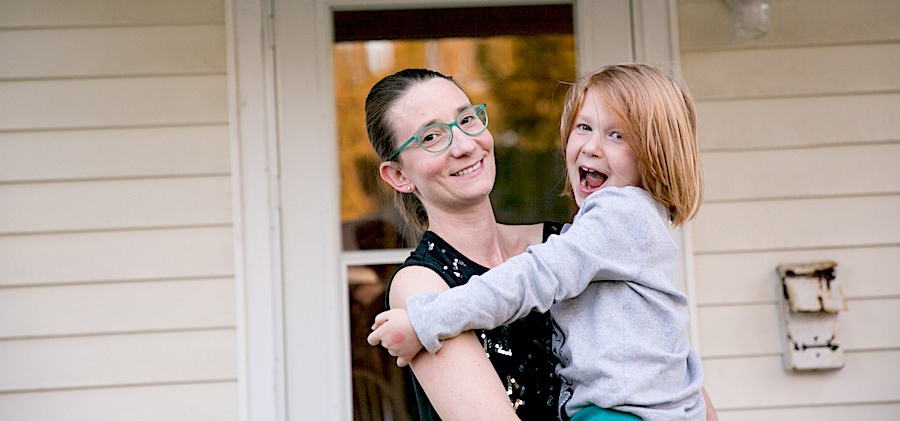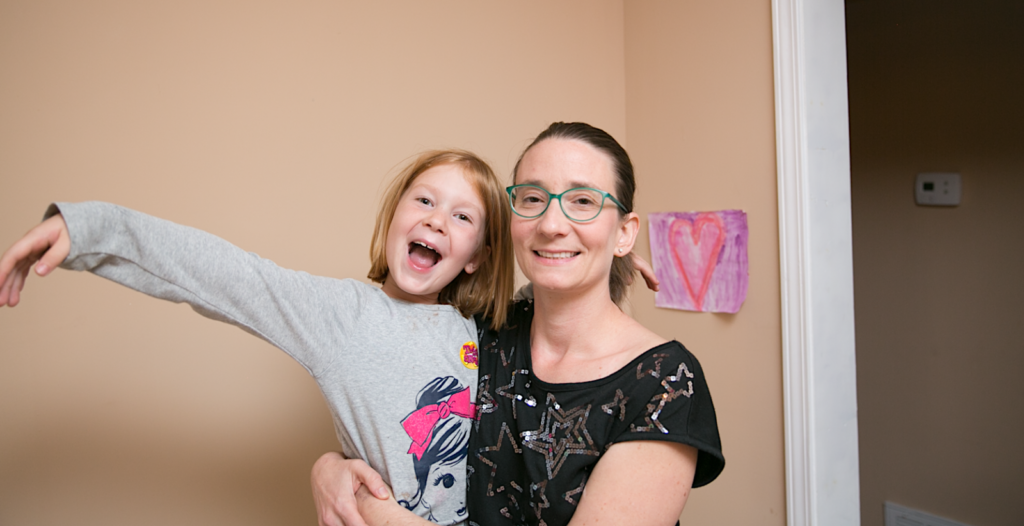In January, CEF Members crossed the $500,000 mark, meaning that Savers have put away more than $500,000 in their Safe Savings Accounts since the program started in 2010. They’ve used those savings for rent, security deposits, utilities, transportation, food, and much much more.
We thought this would be a nice opportunity to check in with a CEF Saver about his goals and CEF experience. Chapel Hill Member Darryl enthusiastically agreed to talk! He’s from Jamaica, Queens, New York and has been a CEF Member since the fall of 2014.
Why do you save with CEF?
I save because if something comes up with my car, like tags or taxes… or if I’m going to take a trip, I know this money is over here.
It’s somewhat like an emergency fund. It’s some money that I have automatically taken out because I save better when it comes directly out of my check.
With my savings here, you get 10% [matched] up to $2,000. Even Matt (Darryl’s Advocate and Chapel Hill Advocate Program Coordinator) has got me putting money in my savings account also. So I’ve got some in my savings account, some in my Safe Savings Account here at CEF, and some in my safety deposit box. I’ve gotten in the habit of putting up money.
I’m getting ready to take a trip and that’s what I’m going to use the money from CEF for. I’m going to go home. I’m going to New York in April.
Would you recommend the Safe Savings Account to other people?
Yea! It’s helpful to have someone help you decide if it’s a good idea or not [to withdraw money]. If you get with an Advocate, especially once they get to know you, they know if you really need the money and if it’s really a good decision you’re making or if it’s not! They’re still going to give you your money, but they’re going to help you with it — they’ll help you make good choices about spending that money.
Do you have a favorite CEF memory?
Well Mike, the guy who teaches Opportunity Class, he’s a character. I mean Saturdays I love to go because I’m just around the guys. They bring new guys in. It’s Mike, he’s like a comedian. When he teaches the class, he makes it interesting! That’s every Saturday. I don’t have a favorite moment because every time I come here something’s going on.
What does financial independence mean to you?
I came here because I needed a couch and I was on a fixed income. And when I came here I had started working. The thing is with CEF, I learned from the class that I didn’t know anything about establishing my credit as far as getting a secured credit card when my credit wasn’t any good. When I came here my credit was poor, now it’s fair.
So it is a good thing that I did come here because they’re teaching me ways to handle things to better myself to be more financially independent. I bought a car since I’ve been here. Matt helped me get my car refinanced.
This place right here has helped me out tremendously and I’m grateful for CEF! I’m grateful for not just Matt. It’s the relationships that are established here, also. Matt knows me! He got me to where I don’t carry cash around like I used to; I don’t whip my card out every few minutes.
How did he help you do that? What do you attribute those new habits to?
It helps me save money! The first day I met with Matt, I said that I spend money all the time, you know going to Walmart and stuff. And he said, “don’t carry cash around and don’t just whip your card out. If you don’t need it, don’t get it.” He helps me out and he gives me good encouragement.
What do you want the CEF community to know about you?
I’m a recovering addict. So when I come here I’m around guys [who are experiencing addiction], and we help each other because it’s not about me trying to make them do something they don’t want to do. But, it’s encouraging when you’ve got somebody who came from where you came from. I speak about that in Opportunity Class. If it’s got anything to do with the discussion I can talk about how I used to be on drugs and alcohol real bad. And today I do better things with my money and I help other people in the process. That’s what we do, we help each other.







